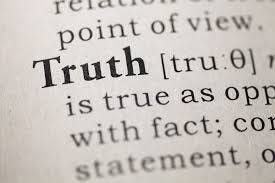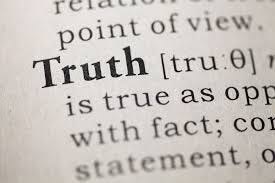It is almost a truism now to say that we live in the “post-truth” era. As well documented by Jonathan Rauch’s book The Constitution of Knowledge, the epistemic norms of the “reality-based community” are under attack. For technological, sociological, cultural, and political reasons, it is not only more and more difficult to assert the truth or to distinguish between the true and the false. It seems that the very status of Truth as a core value of modernity is now in jeopardy. Instead of truth-seekers, we are more and more living in a world of “bullshiters” in Harry Frankfurt’s sense,[1] i.e., a world where people just don’t care about what is true or not and do not take the pain to find whether or not their beliefs are true.
Rauch is only one among many others who worry about this state of affairs. The “epistemic liberal order” is under pressure, and with it is liberal democracy as a whole that is threatened. This is because, presumably, Truth is a constitutive value of the liberal society. It is interesting however to note that not all liberals (in the European, classical sense of the word) agree on giving such a central place to Truth. Indeed, there is a significant tradition in public reason and political liberalism that views the concept of truth as incompatible with an account of justice and more generally of justification that looks for reconciling disparate views about the right and the good.
The most illustrious contributor to this tradition is – unsurprisingly – John Rawls. Rawls notoriously argued that the concept of truth enters in conflict with the idea of public reason, at least once the fact of pluralism is acknowledged:
“Once we accept the fact that reasonable pluralism is a permanent condition of public culture under free institutions, the idea of the reasonable is more suitable as part of the basis of public justification for a constitutional regime than the idea of moral truth. Holding a political conception as true and for that reason alone the one suitable basis for public reason, is exclusive, even sectarian, and so likely to foster political division.”[2]
The substitution of the concept of the reasonable for the concept of truth that Rawls is arguing for is part of his broader account of neutrality. It promotes the view that what Joseph Raz[3] has called “epistemic abstinence” is a necessary condition for the full and public justification of principles of justice to people who disagree about the good and who hold incompatible moral, metaphysical, and religious beliefs.
As Joshua Cohen nicely deciphers in a very important article on this issue,[4] what Rawls is defending is a “no concept view” according to which the concept of truth is foreign to the idea of public reason, rather than claiming that public reason makes substantive truth judgments irrelevant. In other words, the claim is not that truth is neither necessary nor sufficient for public justification. Rather, the no concept view holds neither that “truth is (not) necessary” nor that “truth is (not) sufficient” because there is no concept of truth that is meaningful in the context of public justification.
What is the main motivation behind this counterintuitive rejection of truth from the domain of public reason? In essence, the main problem lies in the fact that appeals to truth may be divisive because they are authoritarians. Truth is exclusive or, as Cohen says in the aforementioned article, “singular”. If q implies non-p and I assert that p is true, then I necessarily assert also that q is false. However, if you believe that q is true, then my assertion entails that you’re wrong. By claiming the authority of truth, I’m basically claiming authority, not (necessarily) over you, but over your beliefs. Claims of truth basically act as “conversation-stoppers”. If p is true, then there is nothing more to say. Either you change your mind and agree, in which case you have conceded in favor of my view; or you still insist on your view, but my appeal to truth suggests that it is inferior to mine. As the quote above indicates, for Rawls, such appeals to truth are politically divisive precisely because they do nothing to advance justification, as you can also appeal to the authority of truth to make your case.
A related concern is that appeals to truth may license the introduction of controversial ideas and considerations in the realm of public justification. In other words, if truth systematically overrides other normative values such as fairness, freedom, or dignity, then the claim that a particular comprehensive view is “true” will license its justification even though it is conducive to implications that are otherwise normatively objectionable. Appeals to truth are not only authoritarian, they are also sectarian because they can be used to support comprehensive views about the good life and serve as a justification to exclude.
Finally, the concept of truth itself is subject to disagreement. There are different conceptions of truth, some metaphysical (e.g., the correspondence theory, the coherence theory), others antimetaphysical, i.e., the so-called “deflationary” theories of truth. If people disagree about which conception of truth is the correct one, there is a great chance that they will also disagree about what is true.
Rawls is far from being alone in his rejection of the concept of truth from the domain of public reason. Even though they are less explicit about this issue, proponents of the convergence approach to public reason tend to consider that appeals to truth most of the time are just hidden authoritarian claims. They do not necessarily contend that public reason has no place for the concept of truth. However, they claim that (i) appeals to truth in the justificatory endeavor is a form of outdated rationalism (typical of the Enlightenment) that is conducive to sectarianism, (ii) they generally reflect overconfidence in the abilities of science and philosophy, and (iii) truth is only one of the intelligible reasons that may justify a rule, a law, or a behavior.
Cohen himself is clear that rejecting truth from the domain of public reason is a mistake. He convincingly shows that Rawls’s worries are misplaced. He advances instead a “political conception” of the truth that relies on a few commonplaces about truth. To be fair, however, it is not clear how this minimalism about truth improves Rawls’s and other public reason theorists’ views. For the real issue, at least today, is notably what role scientific evidence and expertise should be given in social choices and public policies. The key contention currently is whether or not they have any grain of political legitimacy in influencing collective decisions. What is troubling is that some arguments developed by populists strangely echo public reason liberals’ claim that truth is not relevant for public justification. On the other end of the spectrum, the rationalistic hubris displayed by proponents of democratic democracy seems to have lived its life. The increasingly complex nature of our societies in all their dimensions (economic, political, cultural, environmental) means that being able to assert the truth is more and more complicated but also, because of that, more and more important. Between epistemic abstinence and sectarian rationalism, there must be a way to give Truth its proper place in the public justification of our institutions and social choices.
[1] Harry G. Frankfurt, “On Bullshit,” in On Bullshit (Princeton University Press, 2009).
[2] John Rawls, Political Liberalism (New York: Columbia University Press, 1993), p. 129.
[3] Joseph Raz, “Facing Diversity: The Case of Epistemic Abstinence,” Philosophy & Public Affairs 19, no. 1 (1990): 3–46.
[4] Joshua Cohen, “Truth and Public Reason,” Philosophy & Public Affairs 37, no. 1 (2009): 2–42.




